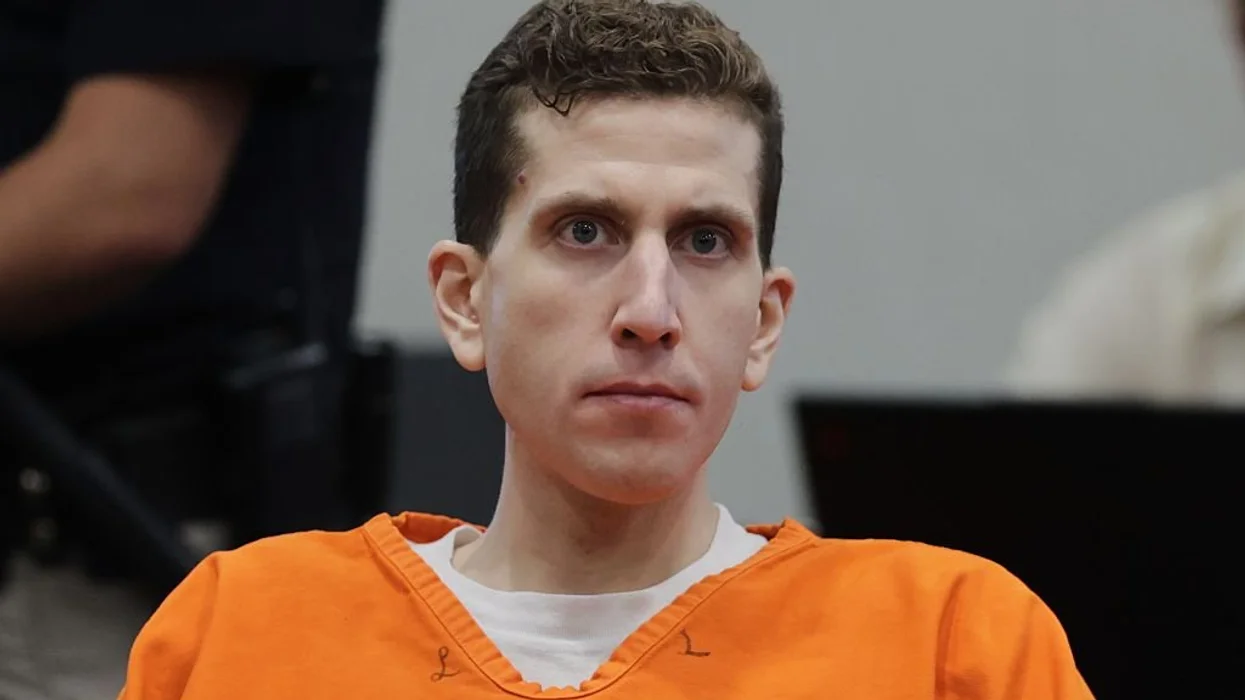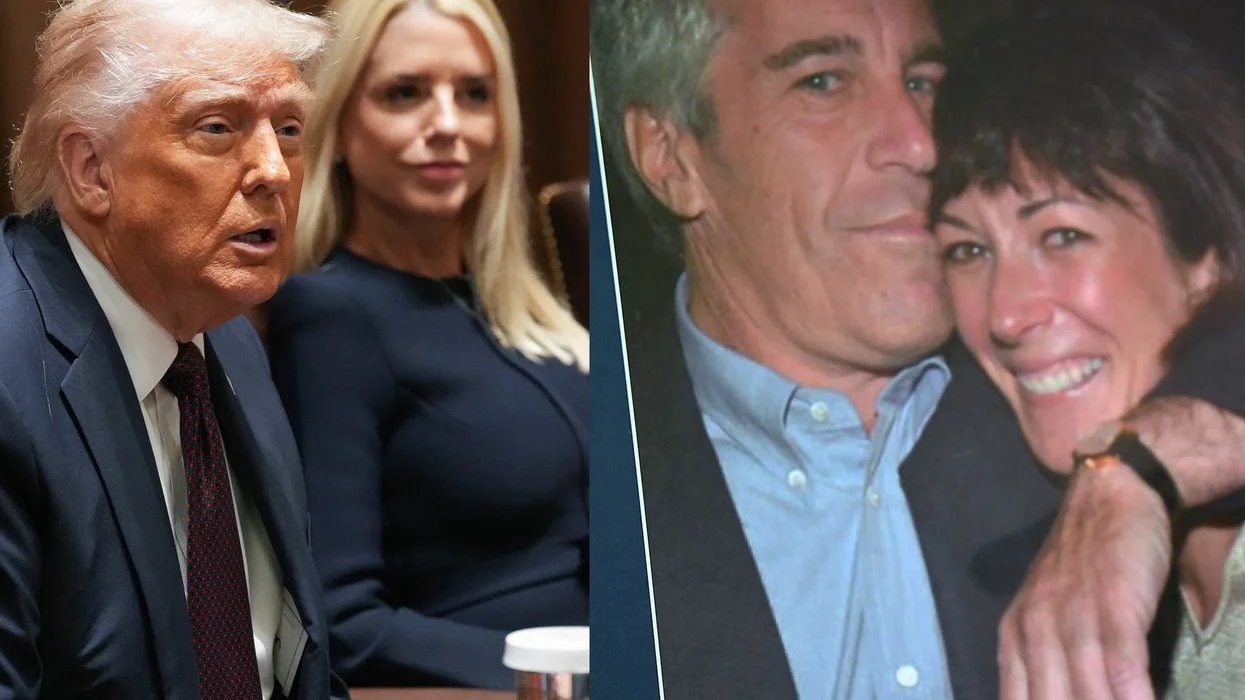JERUSALEM (AP) -- A new Israeli report into the death of a Palestinian boy during a fierce gunbattle in the Gaza Strip more than a dozen years ago has reignited an emotional debate over who killed him - and how the incident has shaped perspectives of the Mideast conflict.
Israel says a French TV report in 2000 that claimed Israeli forces killed the boy is misleading, provides no evidence and is part of a smear campaign against the Jewish state. For Palestinians, the case remains a vivid symbol of Israeli oppression and of their own sense of victimhood.
 In this Sept. 30, 2000 file image from television, Jamal al-sutra signals his position while protecting his 12-year-old son Mohammed al-Dura, as they shelter behind a barrel from crossfire near Netzarim Jewish settlement in the southern Gaza Strip. More than a dozen years later, the death of a Palestinian boy allegedly shot by Israeli troops in Gaza continues to stir emotions on both sides of the conflict. (AP Photo/France 2, Fille)
In this Sept. 30, 2000 file image from television, Jamal al-sutra signals his position while protecting his 12-year-old son Mohammed al-Dura, as they shelter behind a barrel from crossfire near Netzarim Jewish settlement in the southern Gaza Strip. More than a dozen years later, the death of a Palestinian boy allegedly shot by Israeli troops in Gaza continues to stir emotions on both sides of the conflict. (AP Photo/France 2, Fille)
The deep feelings surrounding the death of 12-year-old Mohammed al-Dura illustrate how the Israeli-Palestinian conflict goes far beyond the battlefield and is often a high-profile media war as well.
While Israel enjoys an overwhelming military advantage, it is often outclassed in the imagery battle, with the Palestinians portraying themselves as David to Israel's Goliath. It's a touchy subject for Israel, which devotes an enormous amount of energy to promote its image to counter what it sees as hostile international opinion.
The France 2 network report aired on Sept. 30, 2000, days after a Palestinian uprising erupted.
The video showed a terrified child and his father, Jalal, cowering in front of a wall during an exchange of fire between Israeli troops and Palestinian gunmen. The father is seen gesturing frantically to try to stop the shooting as the boy screams in terror. The camera then cuts to a shot of the motionless boy slumped in his father's lap. France 2 blamed Israeli troops for killing the boy.
Israel has long disputed the accusation, and on Sunday it published the 44-page report of its investigation, ordered last year by Israel's current Defense Minister Moshe Yaalon. It found the TV report misleading and unfairly critical of Israel. It said there was no evidence the boy was shot by Israeli troops or that he was even killed at all, claiming there were no blood marks on the scene or bullet wounds in the alleged victims. It said the boy was shown alive toward the end of raw video it obtained from France 2, but that was not included in the edited TV report.
 A man walks past a mural depicting Palestinian Jamal al-Dura and his son Mohammed, allegedly caught in crossfire between Israeli forces and Palestinian police, moments before Mohammed was killed, can be seen at the Place de l'Enfant Martyr de Palestine (square of the Palestinian martyr child) in Bamako, on March 6, 2013. The monument commemorates the September 30, 2000 event, which has since launched a controversy, with some commentators alleging that the incident had been entirely staged. Credit: AFP/Getty Images
A man walks past a mural depicting Palestinian Jamal al-Dura and his son Mohammed, allegedly caught in crossfire between Israeli forces and Palestinian police, moments before Mohammed was killed, can be seen at the Place de l'Enfant Martyr de Palestine (square of the Palestinian martyr child) in Bamako, on March 6, 2013. The monument commemorates the September 30, 2000 event, which has since launched a controversy, with some commentators alleging that the incident had been entirely staged. Credit: AFP/Getty Images
 Jamal al-Dura (L) and his family, visit the grave of their son Mohammed, at the Bureij cemetery in the central of Gaza Strip, on May 20, 2013. Mohammed died in the arms of his father on September 30, 2000, after being caught in crossfire between Israeli soldiers and Palestinian militants at the start of the second intifada, or uprising. Israel said on May 19, 2013, that a France 2 television report seen worldwide on the death of Mohammed was 'baseless', following an analysis of the raw footage. Credit: AFP/Getty Images
Jamal al-Dura (L) and his family, visit the grave of their son Mohammed, at the Bureij cemetery in the central of Gaza Strip, on May 20, 2013. Mohammed died in the arms of his father on September 30, 2000, after being caught in crossfire between Israeli soldiers and Palestinian militants at the start of the second intifada, or uprising. Israel said on May 19, 2013, that a France 2 television report seen worldwide on the death of Mohammed was 'baseless', following an analysis of the raw footage. Credit: AFP/Getty Images
"It is important to focus on this incident, which has slandered Israel's reputation," Israeli Prime Minister Benjamin Netanyahu said at a ceremony where the report was delivered to him. "This is a manifestation of the ongoing mendacious campaign to delegitimize Israel. There is only one way to counter lies, and that is through the truth."
Yuval Steinitz, Israel's minister of strategy and intelligence, called the al-Dura affair "a modern-day blood libel."
No autopsy was conducted, and the Israeli investigation was based primarily on expert interviews and analysis of the raw film.
The boy's father, Jamal al-Dura, on Monday called the Israeli allegations "silly" and offered to have the body exhumed for international inspection. "If he is still alive, who was the one who was shot in my arms and killed?" he asked. "The entire world saw how my beloved son was killed."
France 2 said it would be willing to help al-Dura's father exhume the body to "clarify the circumstances of the incident."
"France 2 learned about the existence of the committee from the press, and this speaks for itself," said Charles Enderlin, the network's Jerusalem bureau chief and the reporter of the initial al-Dura story.
For the Palestinians, the al-Dura affair became a powerful rallying cry. The Palestinian Authority issued stamps and posters bearing his image and named a children's hospital after him. Other Arab countries named schools and streets in his honor. The boy's father was invited on speaking tours in the Arab world and honored by universities and political parties.
Islamic militants have cited the case as justification for carrying out attacks against Israel and Jewish targets overseas.
Israeli commentators who believe their country has been unfairly punished for the case nonetheless questioned the decision to conduct a new investigation, saying it was unlikely to sway already hardened opinions around the world.
"On one hand, it's better late than never. On the other, the damage has already been done," wrote Ben-Dror Yemini, a columnist for the Maariv daily. "No report, and certainly not a report commissioned by the Israeli government, is going to decrease the damage. We have already been defeated in the battle between lies and the truth. The lies won."
Yossi Kuperwasser, the Israeli official who led the investigation, said it was imperative to set the record straight.
"The entire idea that Israel is a child killer ... is first and foremost based on the Mohammed al-Dura story," he told The Associated Press. "This case ... is still being used by people who are committing terror attacks against Israel. It still feeds the hatred."







